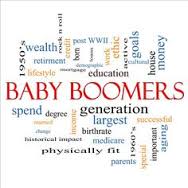Nuance Audio is a new option for people who resist traditional aids, from the company that makes Ray-Bans and operates LensCrafters.
Seekers of Meaning Podcast Posted Online March 7, 2025
What's Next Longevity Deal Talk Episode 32, January, 2025
Presentation: What's Next Longevity Venture Summit, June, 2025

 A short month saw plenty of food – and provided food for thought. Many (54 million!) traveled during the US Thanksgiving holiday,
A short month saw plenty of food – and provided food for thought. Many (54 million!) traveled during the US Thanksgiving holiday,  What is the likelihood of living to 100 for older adults? Greater than you think – can you imagine that that by 2050, the number will grow from 72,000 to
What is the likelihood of living to 100 for older adults? Greater than you think – can you imagine that that by 2050, the number will grow from 72,000 to  Two sets of pitches, ten finalists across the competitions. The first five are finalists in the 2018 Silicon Valley Boomer Venture Summit Business Plan competition. The Business Plan Competition features companies pitching their ideas to a diverse panel of judges for feedback, funding and a $10,000 prize. The second five are finalists in the AARP Innovation Labs Pitch Competition for companies focused on providing peace of mind to family caregivers through the use of VR, AI and other disruptive technologies. The winning team will go on to the AARP Innovation Pitch Event in Washington, DC, in October of 2018.
Two sets of pitches, ten finalists across the competitions. The first five are finalists in the 2018 Silicon Valley Boomer Venture Summit Business Plan competition. The Business Plan Competition features companies pitching their ideas to a diverse panel of judges for feedback, funding and a $10,000 prize. The second five are finalists in the AARP Innovation Labs Pitch Competition for companies focused on providing peace of mind to family caregivers through the use of VR, AI and other disruptive technologies. The winning team will go on to the AARP Innovation Pitch Event in Washington, DC, in October of 2018. The irony, the irony – everyone saw Europe’s data privacy initiatives. Why has this taken so long here? In a word –
The irony, the irony – everyone saw Europe’s data privacy initiatives. Why has this taken so long here? In a word –  What makes Voice First special for older adults? This blog has discussed the
What makes Voice First special for older adults? This blog has discussed the